Booster push to bust Omicron threat
Booster vaccines will be fast-tracked and health systems strengthened as state and territory leaders loosen rules around casual contacts.
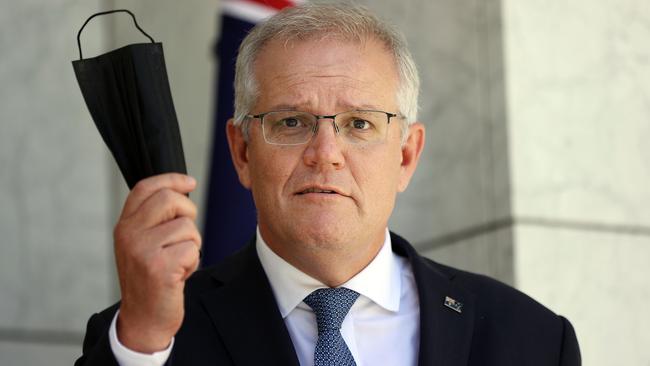
State and territory leaders will loosen rules around casual contacts, use QR codes to monitor rather than police people’s movements and consider removing strict Covid-19 testing requirements for travellers, under a strategy that shifts resources into fast-tracking booster vaccines and strengthening health systems.
Following an emergency national cabinet meeting on Wednesday in response to soaring Covid-19 case numbers across the country, Scott Morrison said it was time to end government mandates and transfer responsibility back to Australians.
With interstate travel rules causing major delays at NSW, Victoria and ACT testing sites and thousands of Australians being forced into isolation after coming into contact with positive cases, national cabinet leaders agreed to change tack on restrictions used to fight the Delta variant and opposed returning to lockdowns.
The Prime Minister said that while the highly infectious Omicron variant would spark significant spikes in Covid-19 cases across the country, the focus must be on avoiding serious illness, getting boosters into arms and preparing hospitals. “Despite those rising cases, hospitals and health systems remain in a strong position,” Mr Morrison said.
“But they’ll be tested and our shared goal is to ensure that we keep it that way when it comes to the protection of our health system to deal with the demands of the new strain of the virus. Omicron has only been in Australia for less than four weeks, so it is still fairly early days. But in our response, we have already seen some major improvements in terms of how the country is moving.”
The Australian Technical Advisory Group on Immunisation met on Wednesday afternoon to discuss bringing forward wait times for booster shots and whether Australians needed three jabs to be considered fully vaccinated.
After premiers called for booster waiting periods to be brought forward from five to four months, Mr Morrison urged caution and said the focus should be on administering 360,000 jabs a day.
“Making more people eligible doesn’t get boosters into arms any quicker,” he said. “If anything, it can actually lead to a situation where those groups that you want to prioritise to get those boosters can be crowded out, even at the world record levels that we had, that would still be occurring. You can’t vaccinate 20 million people on one day, regardless of when you make the eligibility criteria.”
National cabinet’s three priorities to combat Omicron focused on public health social restrictions, speeding up boosters and improving testing, tracing, isolating and quarantine measures.
States and territories will reactivate vaccination hubs, returning them to pre-booster levels to get more jabs out the door. Primary care vaccine providers including GP and pharmacists will be handed an additional $10 for boosters delivered from Thursday.
Amid confusion over isolation and testing requirements, Chief Medical Officer Paul Kelly will brief national cabinet leaders on a common definition for close and casual contacts at their next meeting on January 7.
With NSW, Queensland, ACT and Victoria reporting 5510 new infections on Wednesday and holidaying Australians concerned they could be forced into isolation, Mr Morrison said: “We cannot have different rules in different places about what a close contact is and what a casual contact is.
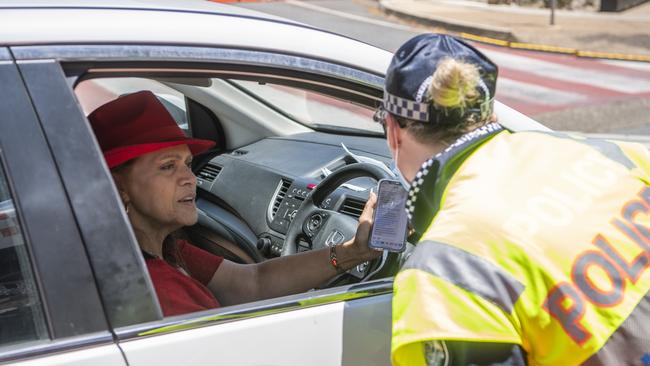
“There is even an argument which says that there shouldn’t be any requirement to have a casual contact definition at all when you’re dealing with such a high volume of cases. What matters is how you’re managing those close contacts and how they’re defined, and what you have to do if you are someone who is in that situation.”
Mr Morrison said state and territory officials would also adopt new approaches to QR codes, which are used to check into offices, hospitality, entertainment and sporting venues.
Higher levels of infection have placed pressure on contact tracing teams unable to keep up with caseloads.
“In those states and territories where there are very high numbers of cases, the prospect of tracing every single person who logs into a particular venue is unrealistic and is not a good use of resources,” Mr Morrison said.
“And so you have to focus your resources on their highest yield.”
Mr Morrison said the Australian Health Protection Principal Committee had provided clear advice that masks should be worn in indoor spaces and Australians understood “what they need to do to protect their own health”.
“Governments are taking action,” he said. “But individuals and communities need to take action as well. There will be a much more greater level of self-regulation when we deal with the volume of cases that … are likely to occur in the weeks and months ahead.”
Following the meeting, West Australian Premier Mark McGowan became the first leader to mandate booster shots, covering about three-quarters of the state’s workforce, but said he would not force people to wear masks until the state reopened on February 5.
Mr McGowan, who imposed new travel restrictions with the Northern Territory and Tasmania from Sunday, said West Australians “need to start thinking about a third dose before Omicron comes into our community”.
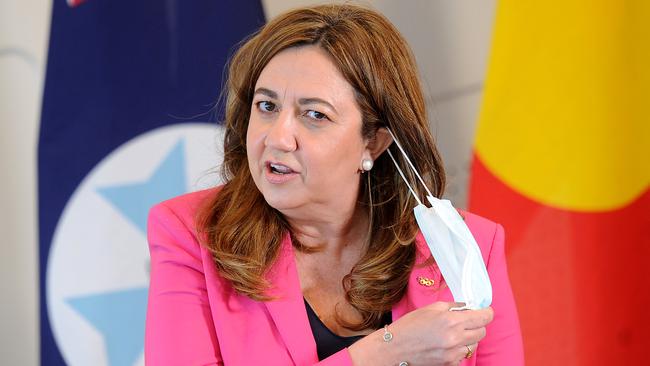
“The picture of Omicron that’s beginning to emerge is troubling,” Mr McGowan said. “WA is in the best position possible to prepare for the virus, but the virus will find those who are not vaccinated.”
After copping flak for adding stress at testing sites in the southern states, Queensland Premier Annastacia Palaszczuk said she was considering easing requirements for interstate travellers to return a negative PCR test 72 hours before arrival. Ms Palaszczuk has sought advice on allowing rapid antigen tests from January 1.
Mr Morrison said about one-in-four people waiting in testing queues were not symptomatic or even casual contacts. “They just want to travel to another state,” the he said. “And this is putting unnecessary pressure on the testing system, and it is redirecting resources away from where there is better use of it, in particular, in re-establishing the vaccine hubs run by the states and territories.
“About one in 1000 people who are being tested who are travelling, are proving to have a positive response. For those who are close contacts, that’s 17 to 20, so that gives you an idea of where the resources are best applied.”
With the booster program ramping up and children aged 5 to 11 becoming eligible from January 10, Operation Covid Shield co-ordinator general John Frewen warned of a bottleneck over the next two months. More than 20 million mRNA vaccines are in the country and 1.6 million booster doses have been administered.
Business Council of Australia chief executive Jennifer Westacott said living with Covid uncertainty and volatility until the pandemic ended could be achieved via “robust, sensible, predictable and nationally consistent systems”. She praised national cabinet for taking a “commonsense and pragmatic decision to calmly hold the line”.


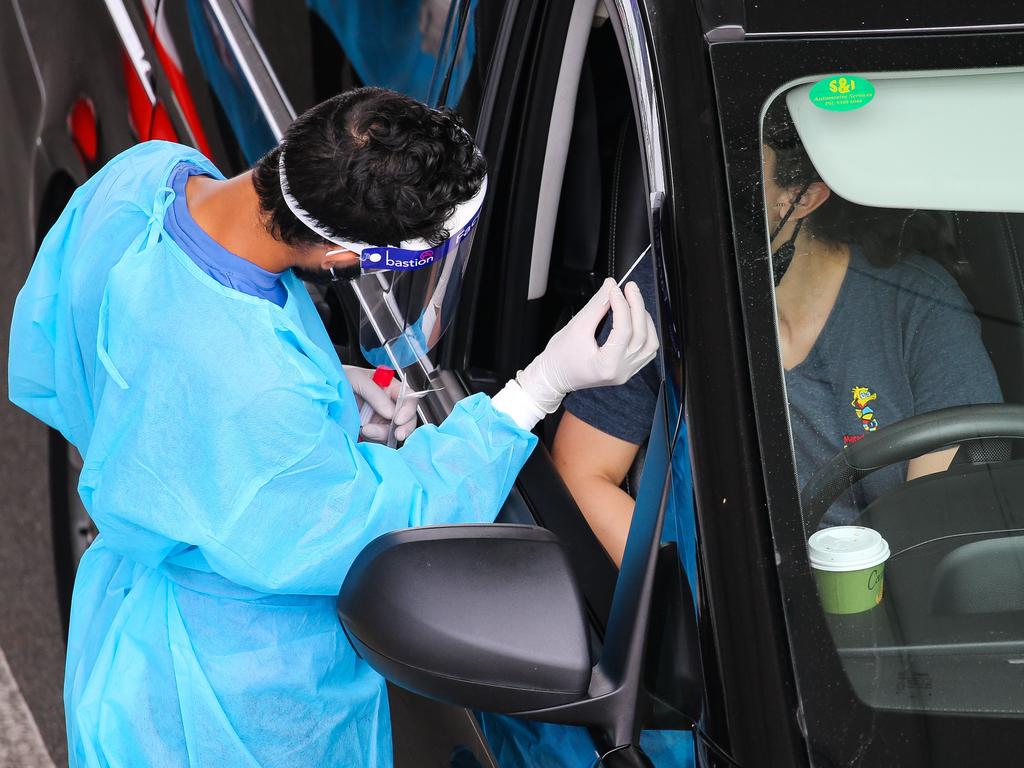

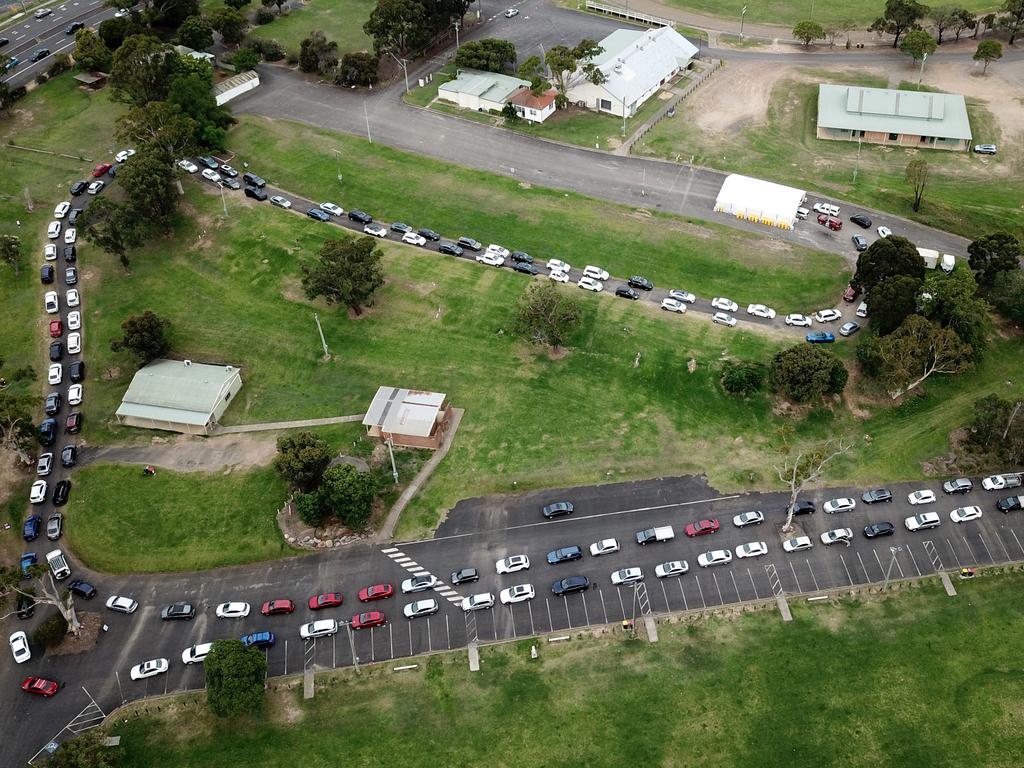



To join the conversation, please log in. Don't have an account? Register
Join the conversation, you are commenting as Logout